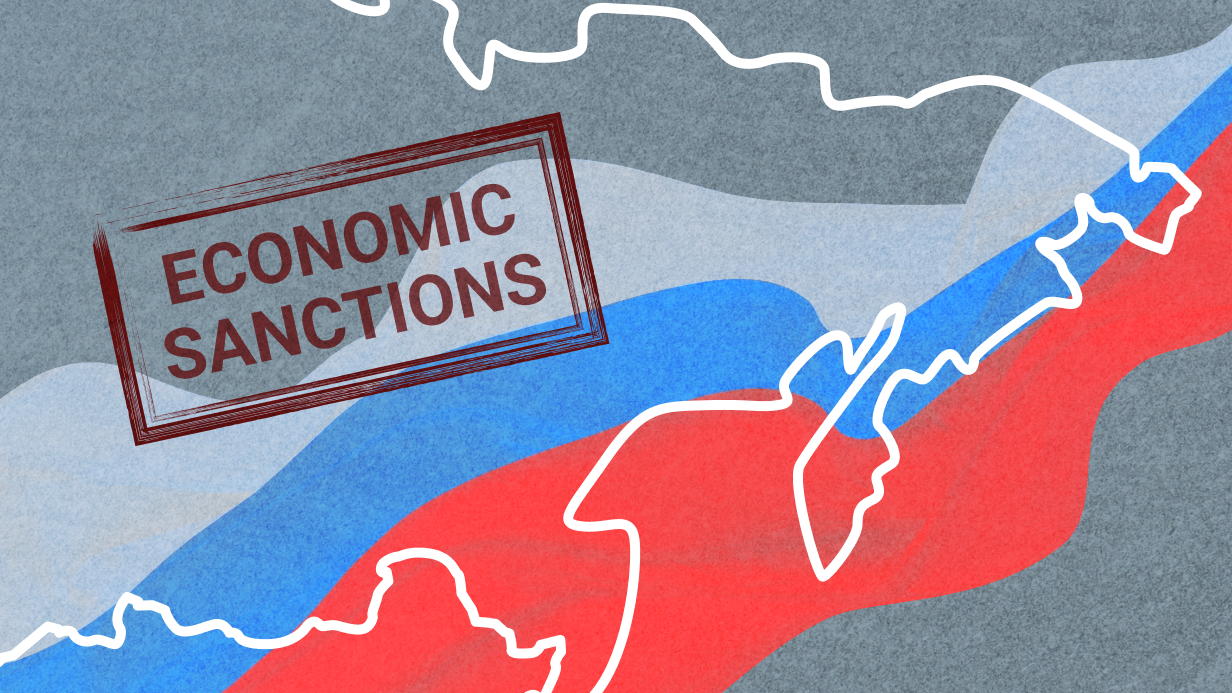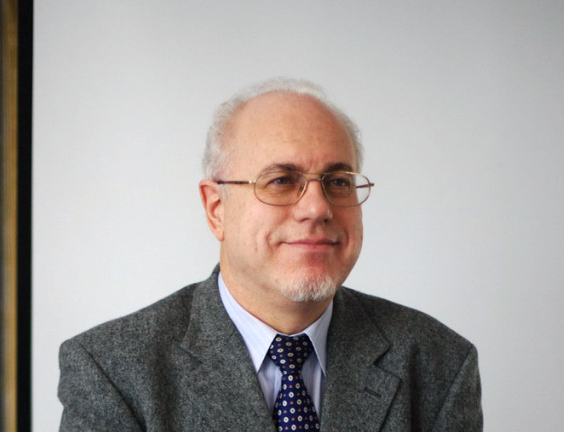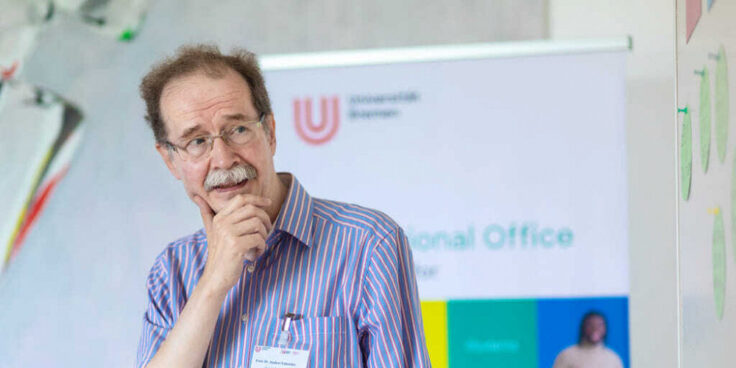
Following the invasion of Ukraine, hundreds of Western brands exited Russia — including those operating in the consumer market as well as in industry and technology, including dual-use sectors. Over the past three-plus years, amid official rhetoric about import substitution — and even “import preemption”, — a parallel logistics system has taken shape — one that keeps Russian store shelves stocked with foreign goods and supplies drones and other military equipment with critical components. For instance, a subsidiary of Sberbank, Russia’s largest state-owned bank, has become one of the largest importers of goods officially prohibited from being supplied to Russia. The country is adapting to life under long-term sanctions. This parallel economy requires new specialists, prompting Russian universities and other players in the educational market to rapidly develop programs to train professionals in sanctions evasion. The Higher School of Economics (HSE) has emerged as a leader in this new academic field. T-invariant reviewed sanctions compliance programs at leading universities and consulted academic economists to assess this emerging trend.
Update: July 15, 2025, 8:30 PM Moscow Time
Several clarifications are needed. 1) HSE offers not three but four sanctions compliance programs (T-invariant discovered an additional one). 2) According to web.archive.org, HSE’s Master’s program “International Corporate Compliance and Business Ethics” enrolled its first cohort in 2020. The webpage for HSE’s continuing education program “Sanctions Compliance” was created on the HSE website in the fall of 2022.
Key news about the lives of scientists during the war, videos, and infographics can be found on the T-invariant Telegram channel. Follow us for updates.
The dire state of the Russian economy is evident from statements made by federal officials, state bankers, and major business leaders at the St. Petersburg International Economic Forum (SPIEF). Their remarks hint at an economy that’s chilling or downright frosty. For instance, Minister of Economic Development Maxim Reshetnikov stated that Russia is on the brink of recession. Herman Gref, head of Sberbank, admitted that for the first time in its history, the bank hadn’t financed a single investment project in the past six months. The forum’s resident firebrand, Andrei Makarov, head of the State Duma Committee on Budget and Taxes, responding to Gref’s questions (“What steps are needed for rapid economic growth?” and “How do we survive until the next [Sberbank] breakfast?”), remarked that he’d “rather not say what I think, as I’d like to live long enough for the next business breakfast.” Makarov concluded his 15-minute speech with a prescription for Russia: “adapt to an economy without foreign investment.” Another recurring theme at the forum was an acute shortage of skilled workers across all sectors. This context highlights how the education system is responding to these tectonic economic shifts and evolving labor market needs. Russia is currently experiencing a surge in interest in training programs for sanctions compliance specialists. Such courses and continuing education programs are offered by both leading state universities and private online academies.
For example, HSE announced enrollment for a Master’s program in this field. The description of “Russia’s first” Master’s program in “International Corporate Compliance” states: “Students are taught to identify and assess risks of sanctions and other regulatory penalties for companies.” The program lasts two years, is entirely paid, with a substantial $6,500 annual tuition fee, and offers 20 spots for Russian citizens and two for foreigners. For those not ready for such a commitment, HSE also offers a continuing education program, “Sanctions Compliance” ($1,100 for 136 hours of online sessions with experts and academics).
The program’s developers promise that participants will learn to “identify risk areas for secondary sanctions and enforcement measures by foreign and Russian regulators during transactions with Russian and foreign entities, and conduct transaction analyses for sanctions risks.” The program is led by Ivan Timofeev, an associate professor at MGIMO (Moscow State Institute of International Relations), director general of the Russian International Affairs Council, and head of the “Euro-Atlantic Security Institutions” program at the Valdai Discussion Club.
Notably, Timofeev holds no position at HSE, while the educational activities of the expert himself and his colleagues resemble a lucrative lecture circuit: alongside HSE, sanctions compliance training is offered at various other venues (1, 2, 3, 4). HSE also offers a more specialized continuing education program focused on “cryptoassets, digital currencies, and regulation in international markets under sanctions and restrictions” (two months for $1,250 in a hybrid format).
Learning to navigate sanctions doesn’t necessarily require two years or thousands of dollars. Moscow Witte University offers a professional development course in just 16 hours for $120. A joint course by the National Compliance Association and Lomonosov Moscow State University (MSU) costs $1,260.
Non-state educational centers also offer numerous options. Training at Moscow Digital School starts this summer, with costs ranging from $775 to $1,375 for a two-month online program. At Legal Academy, roughly the same instructors condense the material into 11 academic hours for $240 (or $185 without a certificate). Also involved is the “Specialist” Training Center, a veteran of fast-track certificate courses at Bauman Moscow State Technical University, offering 16 academic hours for $250.
According to HR managers in Moscow and St. Petersburg interviewed by T-invariant, demand for sanctions compliance specialists surged in 2022 but has since stabilized, by their estimates. However, these sources struggled to determine whether the rollout of full Master’s programs and numerous short-term courses reflects a lagged response by educational institutions or a proactive strategy. Clearly, sanctions pressure continues to grow with no sign of abating. A sanctions compliance course has long been mandatory in HSE’s Department of International Law and had already been offered at the Russian Presidential Academy of National Economy and Public Administration (RANEPA).

“This is a logical adaptation of the education system to new economic realities. It strongly reminds me of how crisis management training programs emerged across Russia. The economy faced severe challenges, with many struggling businesses. Specialists were needed to manage bankruptcy and restructuring procedures. Then it disappeared as quickly as it appeared. Now we see Russia’s economy is shaped by its prolonged war, and everyone understands sanctions are here to stay. Putin made it clear: sanctions won’t be lifted any time soon; they’re here for the long term. Everyone looks at how Iran has lived under sanctions for 40 years. Russia will have to navigate a hostile environment with mounting restrictions and increasingly effective oversight of its foreign trade operations. I believe there’s a top-down directive to learn how to circumvent these. The Russian economy is reorienting for a generation-long life under sanctions,” explains Igor Lipsits, a former full professor at HSE, an economist who was among the university’s founders and served on its academic council.
It’s unsurprising, Lipsits notes, that prominent HSE professors are absent from the roster of these sanctions compliance programs’ authors.
“Many professors have left, and many simply won’t engage in this. They focused on international legal frameworks, aiming to harmonize Russian law with international standards. That’s what they studied, taught, and believed in. These new programs aren’t about law — they’re about bypassing it. If you look at the instructors, they’re itinerant lecturers. We used to have unifiers; now we have dividers and opportunists,” Lipsits reflects.
The emergence of such programs is too niche a phenomenon to draw broad conclusions about the longevity of this trend, argues Andrei Yakovlev, an economist and associate researcher at Harvard’s Davis Center, who served as HSE’s vice-rector for many years.

“If this is a signal, it’s far down the list. There are far more significant indicators. I see a different analogy. It painfully reminds me of how crisis management programs popped up all over Russia. Did that mean management suddenly improved or that there was no return to the old ways? As we know, not really. But universities needed to survive, so they responded to market demand. The market was reacting to the moment, not betting on a decades-long trend. These sanctions compliance programs are similarly driven by current conditions. Yes, these skills are in demand because sanctions are in place and show no signs of being lifted soon. It’s like how, in 1992, courses for brokers popped up everywhere — everyone was teaching them. There was a need to quickly produce some specialists from scratch. But that faded too,” Yakovlev argues.
The rise of sanctions compliance programs also reflects the Russian education market’s response to the rise of a new kind of economy and its workforce shortages, Lipsits suggests. “Russia’s economy is now splitting into domestic and international spheres. In the external sphere, exporters operate, finding it unprofitable to repatriate foreign currency earnings, which are more conveniently used to settle with importers. That’s where these new specialists come in. I’m seeing a major overhaul of the whole system, with a new approach to training and workforce needs. Putin has stated clearly that Russia no longer needs as many economists and lawyers but rather technical specialists. So, paid admissions have been legislatively curbed, enrollment in vocational colleges is on the rise, as there’s a growing need for workers and skilled applied specialists from universities. The economy is becoming more archaic. Eventually, social sciences and humanities education will be restructured as well, though it remains unclear what kind of graduates the system aims to produce,” Lipsits muses. Indeed, job postings valuing sanctions expertise abound. Banks and major industrial corporations are primary employers. Professionals working in international trade and logistics are also in demand, with employers expecting “understanding of logistics chains for various transport types (air, road, consolidated cargo, multimodal) under international sanctions.”